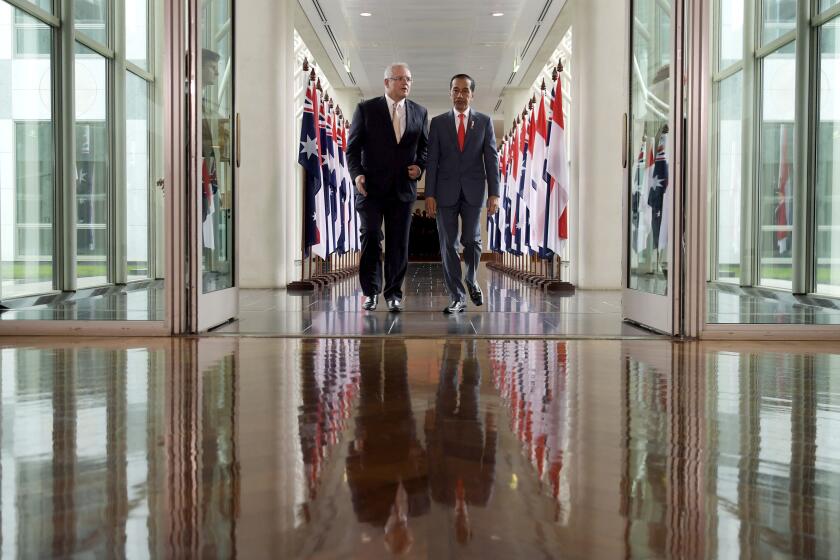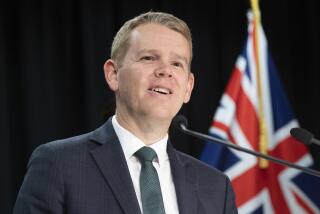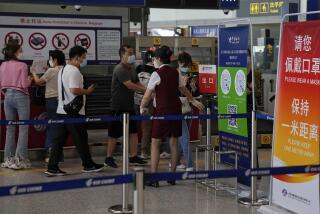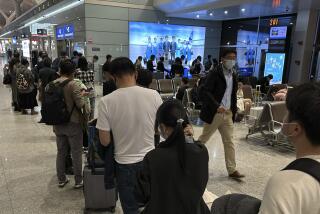Australia plans to lift its coronavirus travel ban for residents after 18 months
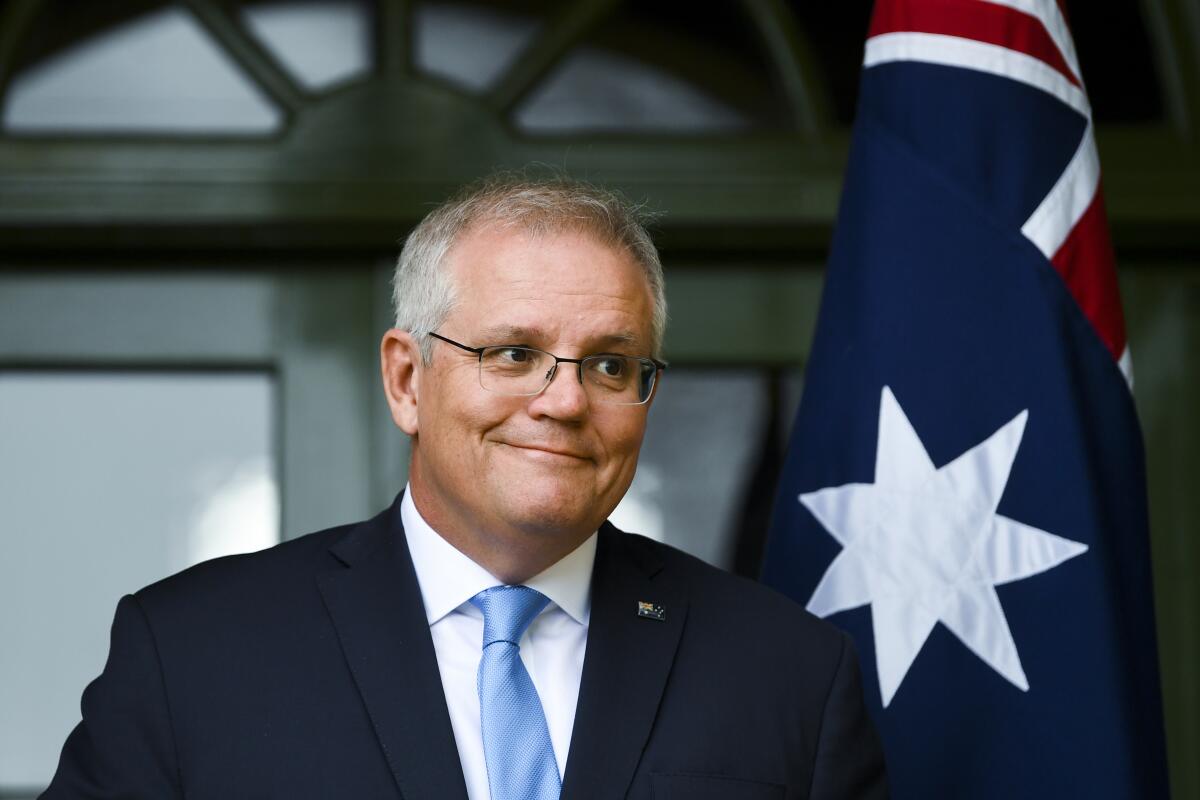
- Share via
CANBERRA, Australia — Australia has outlined plans to lift a pandemic ban on its vaccinated citizens traveling overseas in November. But no date has been set for welcoming international tourists back.
Travel restrictions that have kept most Australians and permanent residents at home over the last 18 months would be removed when 80% of a state’s population ages 16 and up is fully vaccinated, Prime Minister Scott Morrison said Friday.
Australia introduced some of the toughest travel restrictions of any democracy in the world on people entering and leaving the island nation on March 20, 2020.
Most Australians have had to argue for rare exemptions from the travel ban to leave the country. There are a few exceptions to the ban, including for government employees and essential workers. Tourism is never accepted as a reason to leave.
Hundreds of thousands of people have failed to reach relatives’ deathbeds, missed funerals or weddings and have yet to be introduced to grandchildren because of restrictions aimed at keeping COVID-19 out of Australia.
New South Wales, home to Sydney, is likely to become the first state to reach the 80% vaccination benchmark, and Sydney’s airport will probably be the first to open to international travel, Morrison said.
Canberra, the Australian capital, is put in lockdown for a week after a single COVID-19 case was detected and the coronavirus was found in wastewater.
“We’ve saved lives. We’ve saved livelihoods. But we must work together to ensure that Australians can reclaim the lives that they once had in this country,” Morrison said.
Sydney-based Qantas Airways announced that international flights would resume Nov. 14 to London and Los Angeles.
Morrison offered no clue as to when residents of other countries would be welcome to visit Australia.
“We’ll be working towards complete quarantine-free travel for certain countries, such as New Zealand, when it is safe to do so,” he said.
A TV and film industry is booming in Australia’s coastal town of Byron Bay, and promoters are banking on expansion, thanks to its A-list celebrities.
Australia has its closest relationship with New Zealand, whose citizens are considered Australian permanent residents. The neighbors allowed quarantine-free travel across the Tasman Sea before the Delta variant outbreak began in Sydney in June.
The Australian Tourism Export Council, which represents a sector that made $33 billion a year from international tourists before the pandemic, said the end of the travel ban paved the way for visitors from around the world returning by March.
“It marks a shift in thinking within both the government and community sentiment to re-engaging with the world,” the council’s managing director, Peter Shelley, said in a statement.
A cap on the number of Australian citizens and permanent residents allowed to return each week has left 45,000 people stranded overseas. It’s aimed at reducing pressure on hotel quarantine, which the more contagious Delta variant had made more difficult to manage.
The cap would apply only to the unvaccinated under the new regime. Fully vaccinated Australians would be able to quarantine at home and for only a week instead of the current two weeks in a hotel.
Australia on Friday added China’s Sinovac and Indian-made AstraZeneca shots to a list of vaccines that Australians can take and be recognized as fully vaccinated.
Travel restrictions would not be lifted for Australians who choose not to be vaccinated. People who cannot be vaccinated for medical reasons or children too young to get the shots would have the same privileges as those inoculated.
More to Read
Sign up for Essential California
The most important California stories and recommendations in your inbox every morning.
You may occasionally receive promotional content from the Los Angeles Times.
